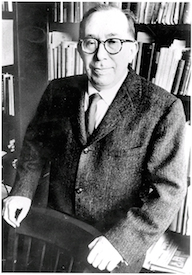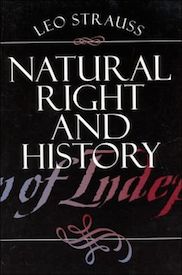Leo Strauss

Leo Strauss was born in 1899 in the town of Kirchhain in Hesse, Germany. Strauss graduated from the Gymnasium Philippinum in nearby Marburg in 1917. In 1921 he received his Ph.D. from the University of Hamburg. In 1922 he spent a year at the University of Freiburg where he attended classes by Edmund Husserl and Husserl’s assistant Martin Heidegger.
In 1925 Strauss began a research position at the Akademie für die Wissenschaft des Judentums in Berlin. In the years 1925-28, he wrote his first book, Die Religionskritik Spinozas als Grundlage seiner Bibelwissenschaft. Untersuchungen zu Spinozas Theologisch-politischem Traktat (1930; published in English as Spinoza’s Critique of Religion, 1965).
In 1932 Strauss studied in Paris on a Rockefeller Fellowship. While there he married the widowed Mirjam Bernsohn whose son he later adopted. In 1933 Strauss and his family moved to England, again on a Rockefeller Fellowship. In 1936-37, he held a research fellowship at Cambridge University. In 1937 he was a research fellow at Columbia University.
From 1938 to 1948, Strauss was a member of the Graduate Faculty of the New School for Social Research. Paul Kraus had married Strauss’s sister Bettina, and Strauss adopted their only child, a daughter, upon the death of both parents in Egypt.
In 1949, Strauss joined the University of Chicago as a professor in the Department of Political Science, and in 1959 was appointed Robert Maynard Hutchins Distinguished Service Professor. He moved in 1968 to Claremont Men’s College for a year and a half, and in 1969 to St. John’s College-Annapolis, where he served as the Scott Buchanan Distinguished Scholar in Residence until his death in 1973.












